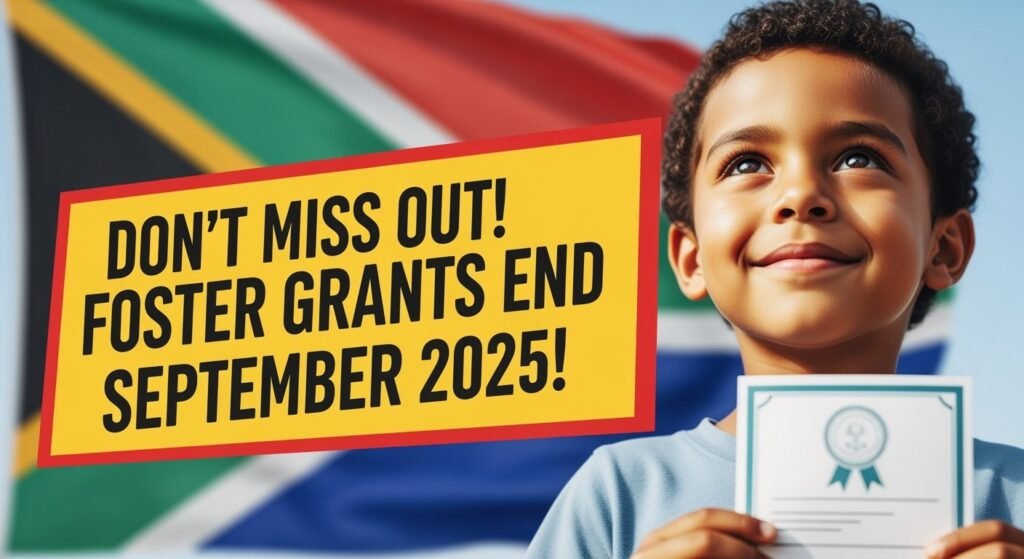Foster Child Grants: As we move closer to the September 2025 deadline for foster child grant applications, I want to make sure you’re fully prepared to secure this vital financial support. The upcoming deadline marks an important opportunity for foster parents and caregivers across the country to access funds designed to help with the costs of raising children in foster care. Have you started gathering your documentation yet? With proper preparation, you can ensure your application is processed smoothly and increase your chances of receiving the assistance your family deserves.

What Are Foster Child Grants?
Foster child grants are financial assistance programs specifically designed to support families caring for children in the foster care system. These grants help cover essential expenses including food, clothing, education, medical care, and other necessities that contribute to a child’s well-being. Unlike loans, these grants don’t require repayment, making them a crucial resource for foster families managing the financial responsibilities of childcare. The September 2025 deadline approaches for foster child grant applications across multiple funding sources, including federal, state, and private foundation programs. Each grant program has specific eligibility requirements, typically based on factors such as the child’s age, special needs status, family income, and length of placement.
Why These Grants Matter
The financial burden of fostering can be significant, even for the most dedicated caregivers. These grants exist because policymakers and organizations recognize that proper financial support leads to better outcomes for children in care. When foster families have adequate resources, they can provide more enriching experiences, better educational support, and higher quality care overall. This financial assistance helps bridge the gap between standard foster care stipends and the actual costs of raising children, particularly those with special needs or traumatic backgrounds. As the September 2025 deadline for foster child grant applications draws near, it’s worth noting that these funds often make the difference between a stable placement and one that faces financial strain, potentially affecting placement stability.
How to Apply Successfully
Preparing a successful application requires attention to detail and thorough documentation. Start by researching which grants you qualify for based on your specific situation. Most applications will require proof of your foster parent status, financial information, details about the children in your care, and documentation of any special needs. Create a checklist of required documents and gather them well before the deadline. Complete all forms with accurate information, and have someone review your application for errors or omissions. Submit your application well ahead of the September 2025 deadline for foster child grant applications to allow time for any corrections or additional information requests. Many successful applicants recommend keeping copies of everything you submit and maintaining a log of all communications with the granting organizations.
When to Start the Process
The application process typically takes several weeks to complete properly, so starting early is crucial. I recommend beginning at least three months before the September 2025 deadline to ensure you have ample time to gather all necessary documentation and address any complications that might arise. Many grant programs offer pre-application consultations or workshops in the months leading up to the deadline. Take advantage of these resources to understand the specific requirements and increase your chances of approval. Mark important dates on your calendar, including any preliminary deadlines for supporting documentation. Remember that some required documents, such as specialized medical assessments or educational evaluations, may take weeks to obtain, so plan accordingly.
Real Family Impact
The Johnson family from Colorado experienced firsthand how transformative these grants can be. After welcoming two siblings with special needs into their home, they applied for and received a comprehensive foster child grant last year. “The grant allowed us to enroll both children in specialized therapy programs that weren’t covered by standard insurance,” shares Maria Johnson. “We also created a sensory room at home that has dramatically improved their emotional regulation. Without the grant funding, we simply couldn’t have provided these crucial supports.” Their success story highlights the importance of meeting the September 2025 deadline with a well-prepared application.
As the September 2025 deadline approaches for foster child grant applications, I encourage you to start your preparation today. These funds can make a meaningful difference in the quality of care you provide and the opportunities available to the children in your home. Remember that you’re not alone in this process—reach out to your case worker, local foster parent associations, or online communities for guidance and support. Your dedication to improving the lives of children in foster care is commendable, and these grants exist to help you in that important mission.




